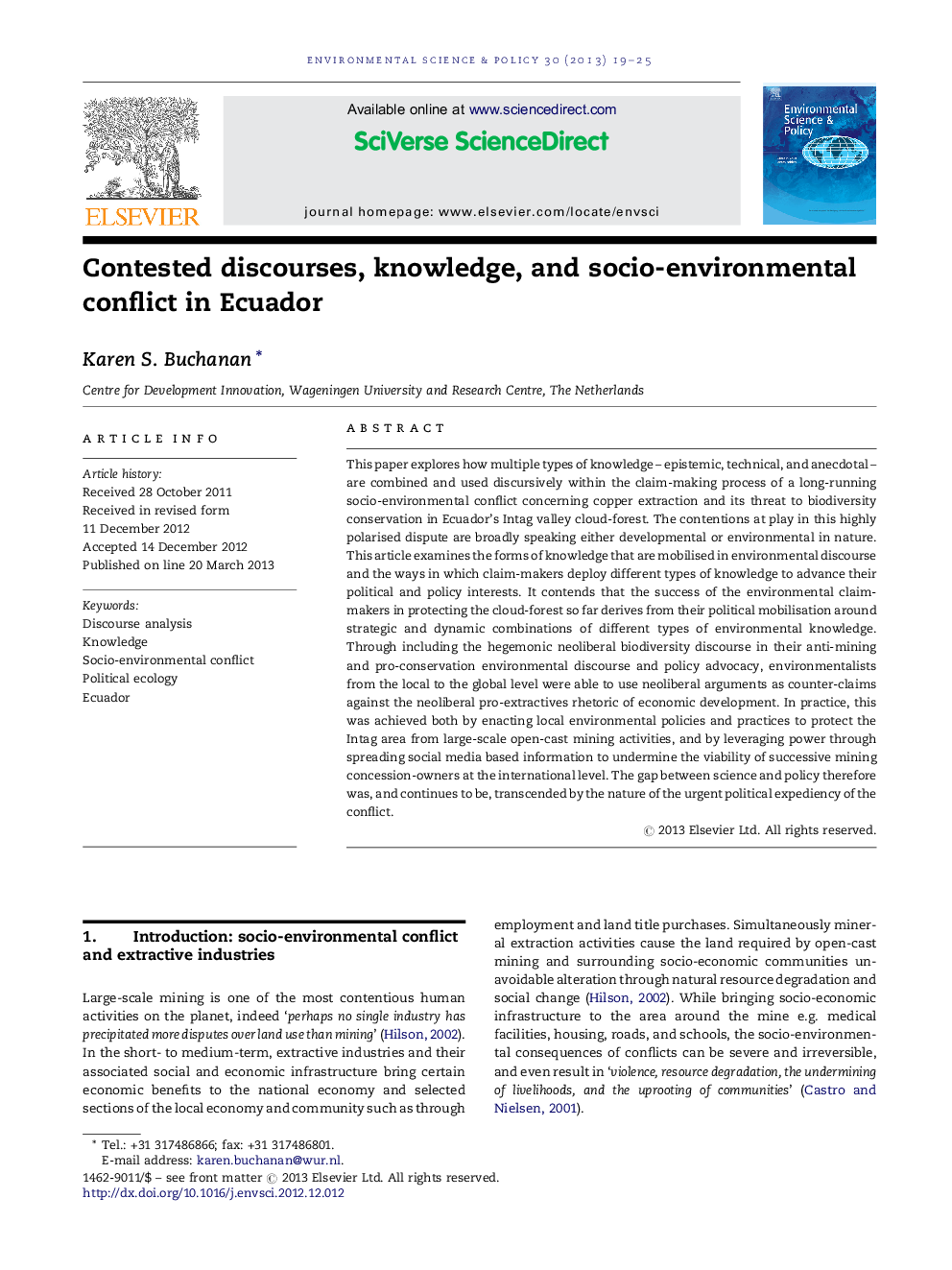| Article ID | Journal | Published Year | Pages | File Type |
|---|---|---|---|---|
| 1053695 | Environmental Science & Policy | 2013 | 7 Pages |
This paper explores how multiple types of knowledge – epistemic, technical, and anecdotal – are combined and used discursively within the claim-making process of a long-running socio-environmental conflict concerning copper extraction and its threat to biodiversity conservation in Ecuador's Intag valley cloud-forest. The contentions at play in this highly polarised dispute are broadly speaking either developmental or environmental in nature. This article examines the forms of knowledge that are mobilised in environmental discourse and the ways in which claim-makers deploy different types of knowledge to advance their political and policy interests. It contends that the success of the environmental claim-makers in protecting the cloud-forest so far derives from their political mobilisation around strategic and dynamic combinations of different types of environmental knowledge. Through including the hegemonic neoliberal biodiversity discourse in their anti-mining and pro-conservation environmental discourse and policy advocacy, environmentalists from the local to the global level were able to use neoliberal arguments as counter-claims against the neoliberal pro-extractives rhetoric of economic development. In practice, this was achieved both by enacting local environmental policies and practices to protect the Intag area from large-scale open-cast mining activities, and by leveraging power through spreading social media based information to undermine the viability of successive mining concession-owners at the international level. The gap between science and policy therefore was, and continues to be, transcended by the nature of the urgent political expediency of the conflict.
► Open-cast copper mining threatens biodiversity conservation in Ecuadorian cloud-forest. ► I examine the claim-making process of a long-running socio-environmental conflict. ► Multiple types of knowledge are used to inform environmental discourse and claims. ► Success of environmental claims depends on strategic use of environmental discourse.
